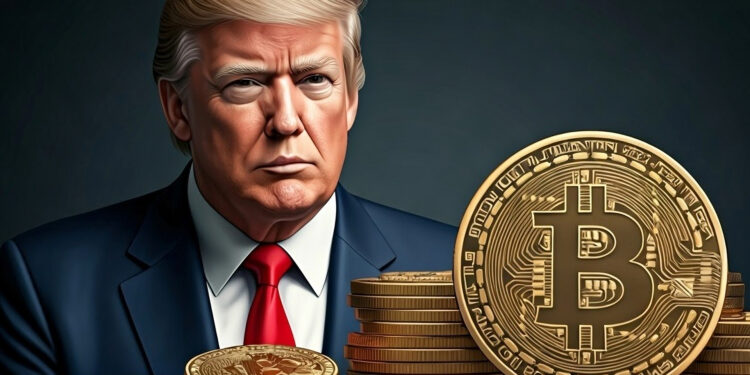The Economist newspaper reported that US President -elect Donald Trump called, 3 days before his inauguration, to buy his cryptocurrency “Trump” ($ TROMP), whose total value was $ 15 billion, recording the peak level.
The newspaper pointed out that this step reflects the great support that its administration provides for digital assets, as the establishment of a new ministry under the name “Doge”, which was announced in the coded “Dujakin” currency.
On January 23, Trump issued an executive order in which he confirmed that digital assets will play a “decisive role in innovation and economic development in America, as well as its role in strengthening the international leadership of the country.”
A radical transformation in the organization of encrypted currencies
Economist indicated that the administration of former President Joe Biden imposed strict restrictions on the integration of cryptocurrencies in the traditional financial sector, as it made the laws difficult for banks to keep the digital assets of their customers or develop financial products based on these assets.
However, the Trump administration adopts a different approach, as the Securities and Exchange Committee announced on January 23 to amend its instructions, which allowed financial institutions to facilitate the preservation of encrypted assets without the need to register them in their public budgets.
American banks are heading towards digital currencies
Economist explained that these amendments will have a significant impact on the banking sector, as the CEO of America, Brian Moinhan, confirmed that banks will start adopting stable currencies, which are digital assets associated with dollars or other currencies, to facilitate financial transactions.
He also pointed out that many banks have begun to develop encrypted symbols representing ownership of shares in the financial market funds, as they are ready to enhance the trading of encrypted currencies as soon as the new organizational regulations are clear.
Economist stated that some financial institutions may seek to acquire encrypted currency companies to enhance their presence in this field, while some digital companies may purchase traditional financial institutions to obtain banking licenses that allow them to accept deposits and provide loans.
“We may witness a wave of mutual acquisitions between traditional financial companies and digital asset companies, which will lead to an unprecedented integration between the two sectors.”
Differences about the structure of payment in the federal reserve
Despite these developments, Economist explained that there are differences between the traditional banking sector and encrypted currency companies, especially about the main payment accounts in the Federal Reserve (the US Central Bank). These accounts, which allow the transfer of funds directly without intermediaries, represent the source of a major dispute.
The newspaper pointed out that the investment bank “Costodia”, which focuses on digital currencies, submitted an application to obtain a major account with the federal reserve in 2020, but it was rejected, while the company “Crakon Financial” submitted a similar request 4 years ago, but it is still Waiting for the response.
The newspaper pointed out that the American Society of Banqueers supported the federal reserve decision to block these accounts from encrypted currency companies, under the pretext of credit and cybersecurity and compliance with the laws of anti -money laundering and terrorist financing.
Warnings of the risk of cryptocurrencies
Economist said that some financial officials have warned of the potential risks of the great integration between Wall Street and the digital sector.
Michael Bar, the former head of financial supervision of the federal reserve, warned that “expanding the scope of encrypted currencies within the financial system may lead to huge systemic risks,” noting previous collapses such as “Silvergit” and “Sigsther”, which collapsed after a sharp drop in prices Current currencies in 2023.
The newspaper also quoted Stephen Kelly, an economist at Yale University, as saying, “If the bank deposits become directly related to the fluctuations of encrypted currencies, we may witness frequent financial crises due to the withdrawal of collective deposits, as happened during the collapse of the FTX platform,” the newspaper also quoted Stephen Kelly, an economist at Yale University.
Between opportunities and risks
Economist concluded its report by noting that the Trump administration sees in encrypted currencies a huge economic opportunity, but at the same time it tests the ability of American markets and consumers to bear the risks caused by this major shift.
“As soon as these regulations began, it will be very difficult for future departments to retract them,” said Julie Anderson Hill, an expert at Wyoming University.
In light of these rapid changes, the question remains: Will “cryptic currency fever” in America will lead to financial prosperity or to a new crisis?



